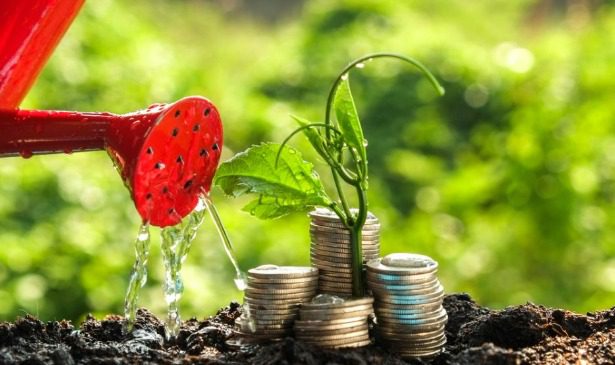The European Commission (EC) is accepting proposals for the greening of SMEs and Social Economy Entrepreneurs in the proximity ecosystem and social economy through transnational cooperation.
Objectives
- The general objective of this call for proposals is to green the processes and activities of SMEs in the social economy, boosting the development of sustainable practices through capacity building, knowledge transfer and transnational cooperation. In doing so, this call for proposals aims to empower SMEs in the social economy to fulfil the objectives set by the EU Green Deal by promoting their capacities and skills, improving their sustainable management and greening their operations.
- The call for proposals will support transnational partnerships to increase the capacity of SMEs and social economy entrepreneurs in the neighbourhood and in the social economy ecosystem to green their operations in order to innovate their products, services and processes and thus enable them to increase their contribution to the green transition in the EU.
- Green growth can offer significant benefits, but many SMEs active in this ecosystem still face barriers to sustainable transition.
Priorities
The call for proposals aims to:
- Support transnational and cross-sectoral co-operation and the exchange of good practices to enable the sustainable growth of SMEs and social economy entrepreneurs with regard to the green transition;
- increasing the capacities and competences of staff and management in SMEs and social economy entrepreneurs to green their operations and develop sustainable products and services;
- encouraging the adoption of sustainable alternatives and innovative solutions through capacity building, incubation and acceleration, counselling and coaching services;
- promoting co-operation between social economy organisations on the one hand, and leading companies, academia and public authorities on the other.
Themes
Activities must fall under at least one of the following themes:
- Improving the environmental footprint of SMEs in the social economy by considering the value chains of products and services, as well as processes and internal management;
- Strengthening the sustainable contribution of social economy entities, enabling the adoption of circular economy practices (e.g. recycling and upcycling), sustainable transport solutions, and enabling the development of renewable energy alternatives (e.g. solar panels), energy efficiency technologies (e.g. heating, renovation and insulation) and resource efficiency solutions (e.g. waste management);
- Enabling the development of local green markets (for example, in retail, agri-food packaging, catering, mobility, construction, cleaning, landscaping, maintenance, manufacturing, etc;)
- Testing, implementation and expansion of innovative ecological solutions by SMEs and social economy entrepreneurs;
- Capacity building and knowledge sharing on measuring and communicating the environmental impact of social economy SMEs;
- Creation of investment or financial vehicles to finance the green transition of the social economy, e.g. philanthropy, local impact investment funds, crowdfunding and match-funding schemes, public private investment schemes, etc;
- Fostering the capacity and skills of social economy SMEs to improve their use of new digital technologies for ecological purposes, resulting in new business models;
- Assessment of the skills, infrastructure and investment needs required to enable social economy organisations to meet long-term climate targets
Financing information
- The call budget available is EUR 6,000,000. This budget can be increased by a maximum of 20%. Project budgets (maximum grant amount) should vary between 750,000 and 1,000,000 euros.
- Projects must vary between 24 and 36 months (extensions are possible if duly justified and for an amendment).
Results
The call for proposals aims to achieve the following result:
- Improving the performance capacity of SMEs and social economy entrepreneurs in the green transition;
- Improving the performance capacity of SMEs and social economy entrepreneurs in the green transition;
- It promoted cross-sector cooperation and knowledge transfer between social economy SMEs and start-ups, large companies, consultancies, business support centres and business incubators with regard to the adoption of green skills and the development of more sustainable products and services;
- Evidence-based integration of sustainable innovative processes by social economy SMEs and start-ups, boosting their competitiveness and creating potential market opportunities;
Eligibility Criteria
- To be eligible, candidates (beneficiaries and affiliated organisations) must:
- be legal persons (public or private entities)
- be established in one of the eligible countries, i.e:
- EU Member States (including Overseas Countries and Territories (OCTs))
- non-EU countries
Specific cases
- Exceptional financing - Organisations from other countries are exceptionally eligible if the granting authority considers their participation essential for the implementation of the action.
- Natural persons - Natural persons are NOT eligible (with the exception of self-employed workers, i.e. sole traders, where the company does not have a legal personality separate from the natural person).
- International organisations - International organisations are eligible. The rules on eligible countries do not apply to them.
- Entities without legal personality - Entities that do not have legal personality under their national law may exceptionally participate, provided that their representatives have the capacity to assume legal obligations on their behalf, and offer guarantees of protection of the EU's financial interests equivalent to those offered by legal persons.
For more information, visit https://bit.ly/3O90Ic9


